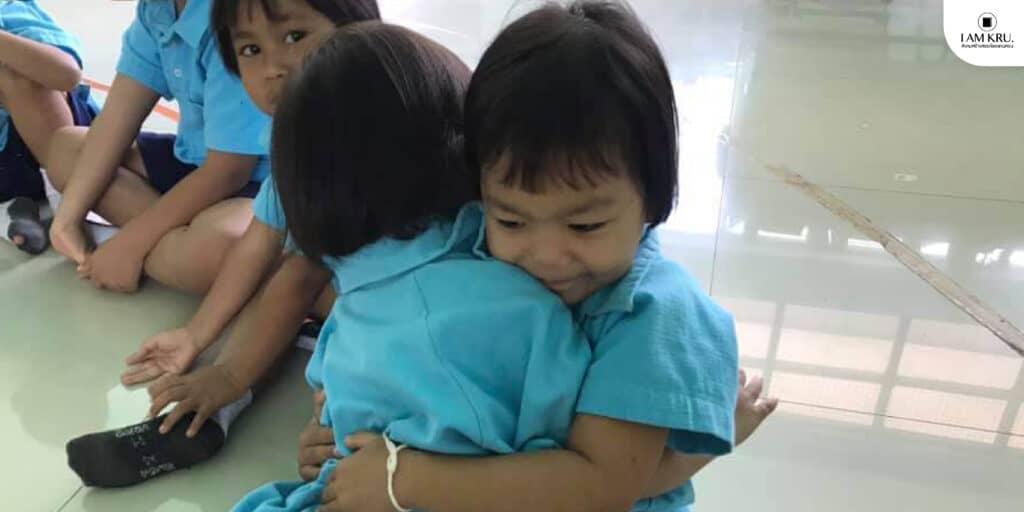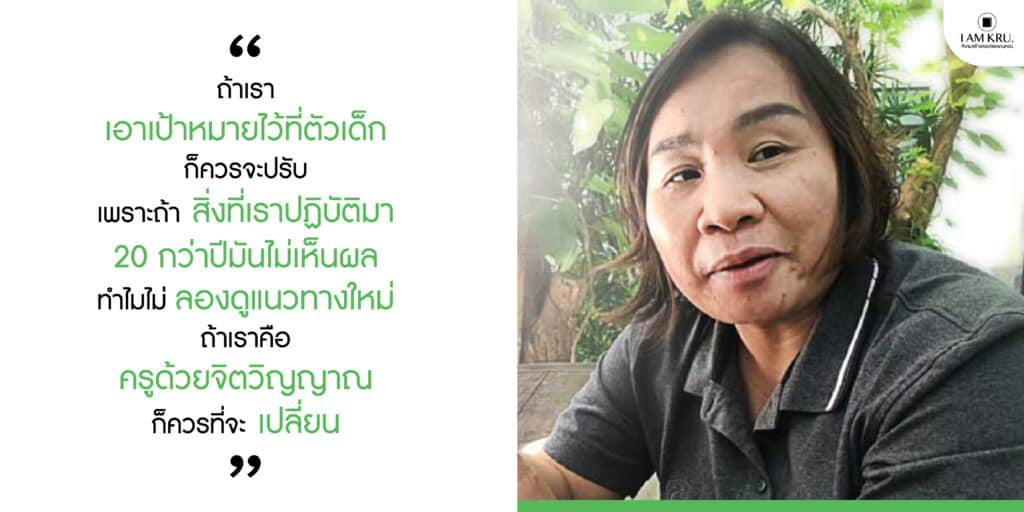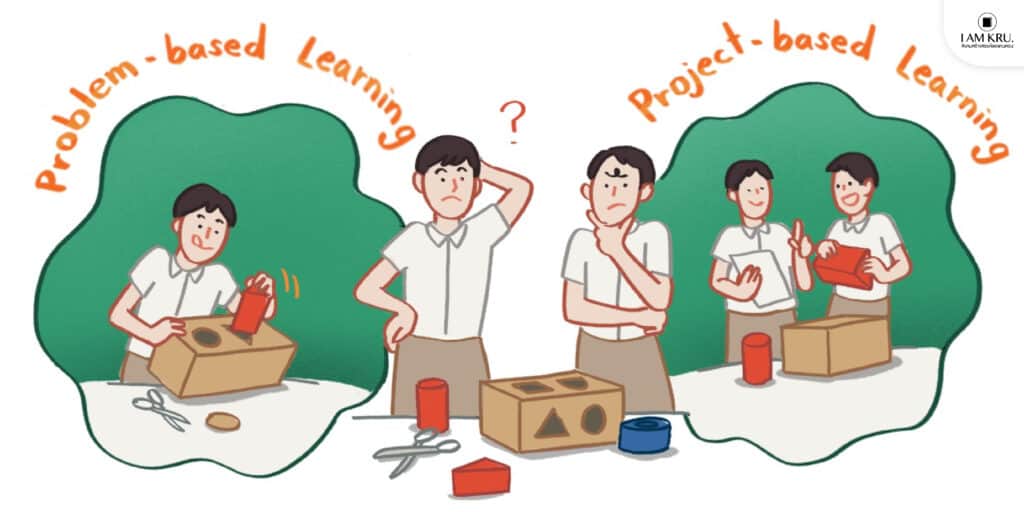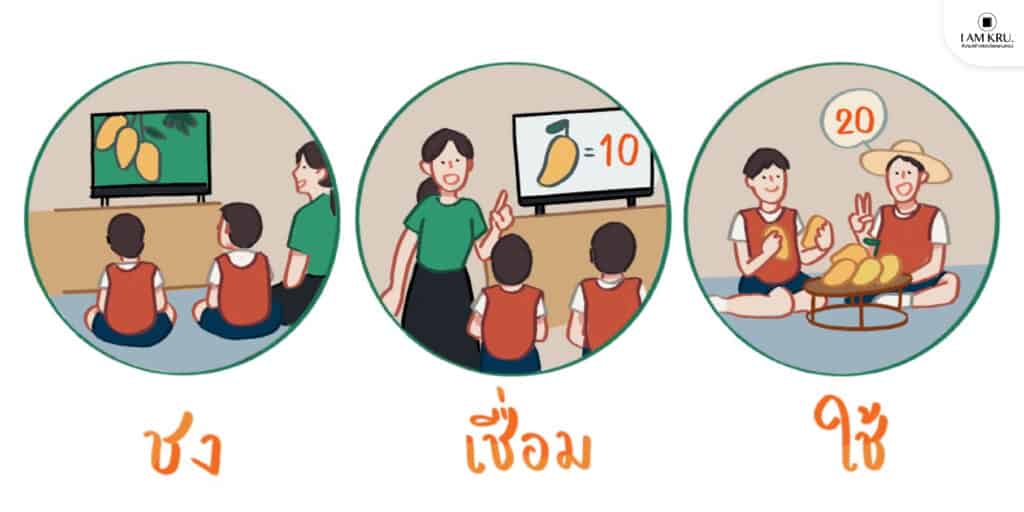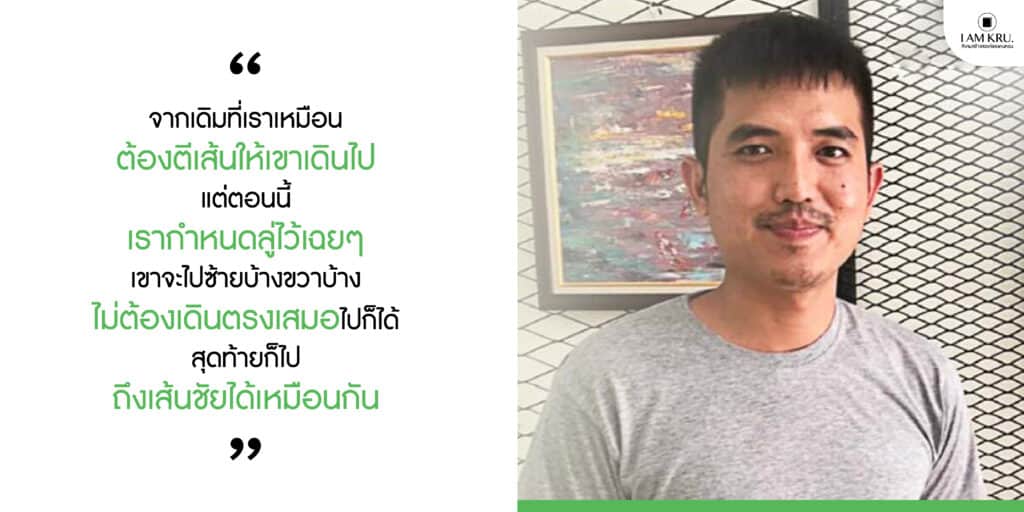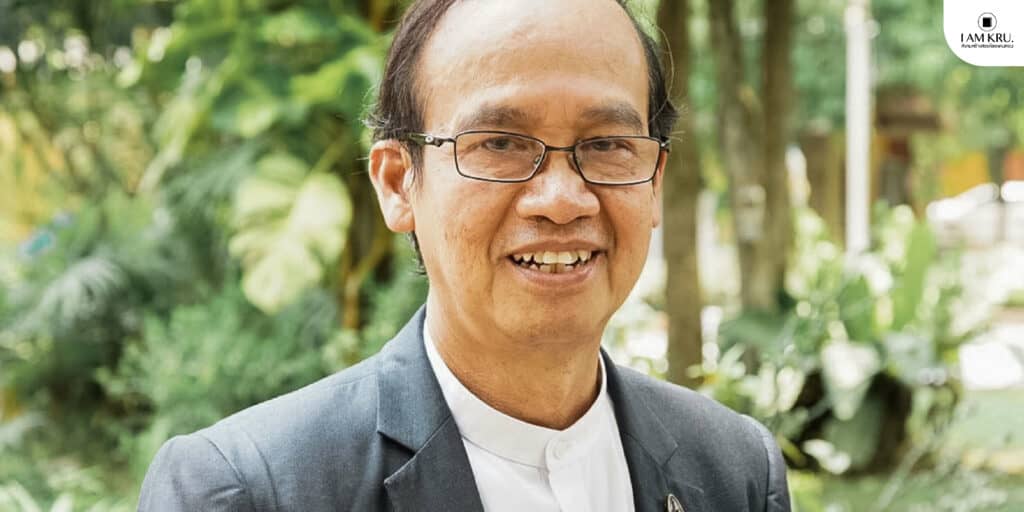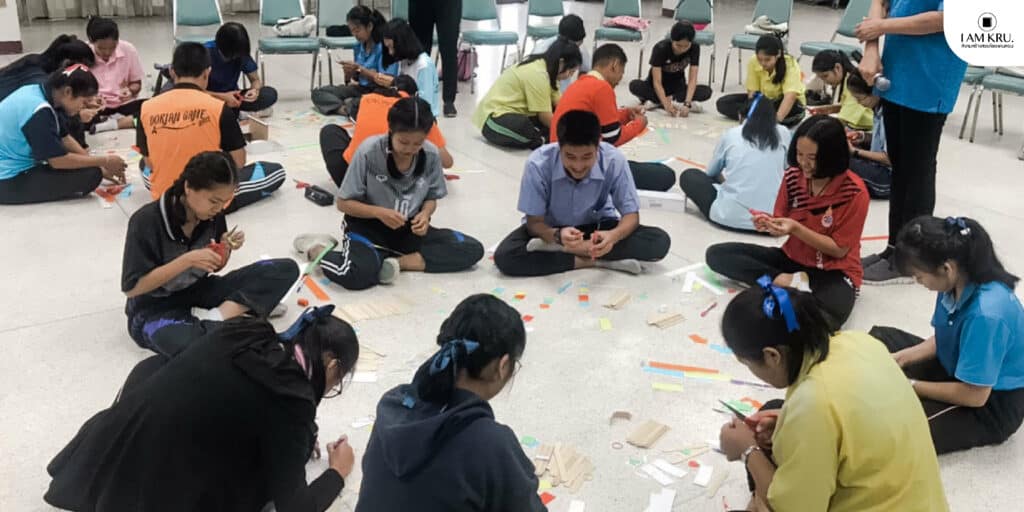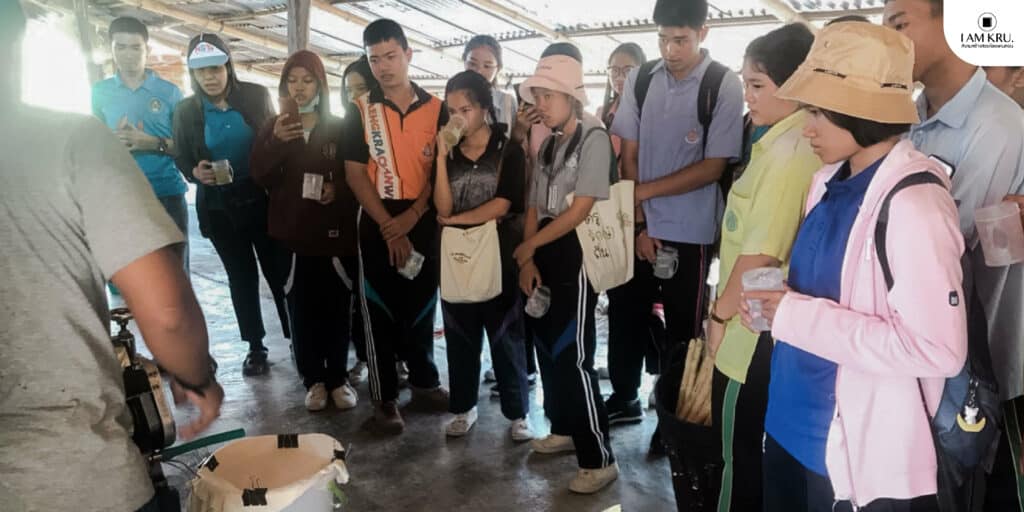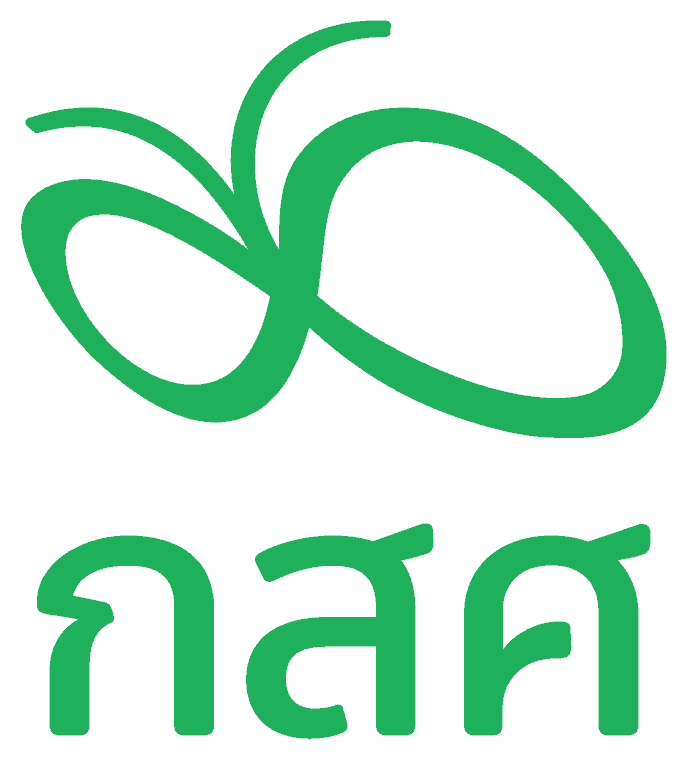Getting to Know “Lamplaimat Pattana School”
A Private School Where Even the Underprivileged Can Learn
Lamplaimat Pattana School stands as a beacon of hope in a society where parents tirelessly strive to enroll their children in ‘good schools,’ often investing millions to secure a ‘better society’ and a promising future for their beloved offspring. Meanwhile, poverty is a formidable barrier that keeps over two million children out of the educational race, with an additional half a million children that the state fails to retain, leaving them to drop out and face an unpredictable world.
Education should be a ladder of hope, growth, and a path to life development. Why then is it not accessible to every child equally? It’s regrettable that even educational opportunities are a stretch for some to grasp.
The administrators of Lamplaimat Pattana School are well aware of this structural issue. The dedication of its teachers to provide quality and accessible education has brought this institution into existence.
What makes “Lamplaimat Pattana School” so special that a family from far away decided to leave Bangkok and relocate to Buriram just to enroll their son, Nonthi, in this school?
Sudaduang Nakasuwan, a former lecturer at the Faculty of Architecture, Thammasat University, gave her reasons for moving her son Nonthi to study in Buriram. She was inspired by the book of the Headmaster, Wichian Chaiyabang, which spoke of a teaching style different from other schools. His philosophy prioritizes life experiences over textbook learning, integrating psychosocial studies with positive energy development, showing a deep care for the students’ well-being beyond academic results.
Lamplaimat Pattana School is a private school that does not charge tuition fees, offering opportunities for children, whether poor or wealthy, to study equally. The classrooms here are not your typical four walls but are the sky above and the grass below, allowing children to learn from nature around them. They develop observation skills, learn to question and find answers independently, and build relationships with classmates through various activities, fostering a participative learning environment.
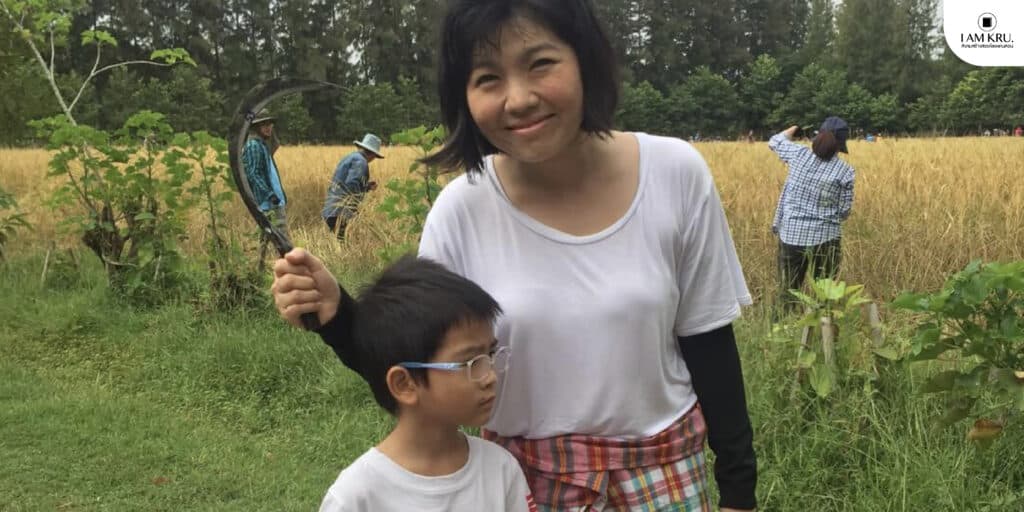
“Previously, I had read almost every kind of educational philosophy – Montessori, Waldorf, Roong Aroon, Darunsikkhalai Institute – but still felt something was missing; none completely resonated with me. It wasn’t until I read the book by the headmaster [Wichian Chaiyabang] that I became truly intrigued and wished to visit the school. Upon visiting, I was impressed by the school’s atmosphere and its positive energy. The children seemed free, especially during the lunch break when they were lively and boisterous. Yet, when it was time to return to class, everyone knew their responsibilities without the need for announcements. The school would become so silent, leaving only the sounds of leaves, the wind, and the birds. It was quite impressive to see such discipline among the children,”
recounts Sudaduang of her initial impression before revealing further.
“Deciding to move him here wasn’t easy, as both my husband and I lived in Bangkok. I had been a university lecturer, and after giving birth, I quit to become a full-time mother. I thought that if I couldn’t find a school that suited my child, I would homeschool.”
However, upon discovering Lamplaimat Pattana School, the entire family decided to move to Buriram. Still, it required adjustments. She elaborates,
“Initially, we had to prepare and organize a new way of working as we started our own business, which necessitated occasional trips back to Bangkok for coordination. So, we had to alternate stays with my husband in Buriram Province. We started by renting a house there; we had no relatives, no experience living in a province, and weren’t sure if we could adjust.”
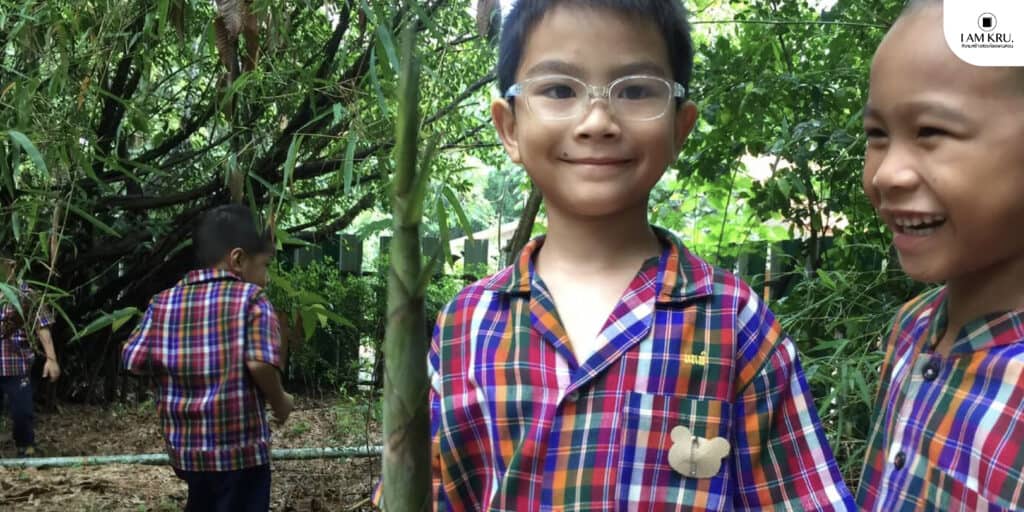
As a former university lecturer, she saw the analytical and synthesis skills of Thai students deteriorating over time and felt that current educational processes might not be adequate. Her goal in raising her child was not necessarily to get him into a university but to help him discover his passions and support them.
“We’ve taught at university before; we know that getting into university doesn’t always mean success. Some students only realize in their final year that they don’t enjoy their field of study. Some drop out to pursue culinary arts, while others might take a break for a year or two because they don’t know what to do with their lives.”
After Nonthi enrolled at Lamplaimat Pattana School, she found the decision to be right and worthwhile. The school’s teaching process allows children to think and act, to seek answers and analyze problems independently. The teachers are attentive and always listen to the students. Besides being beneficial for the child, it also benefits her and the family, as they can trust the school to take care of their child without worry, allowing them to concentrate fully on their work.
Just like Piyanut Saengsawang, the mother of Nama Namo, who also moved from Bangkok, initially consulted with a doctor about what kind of school would be suitable for her child. Later, she was advised about a school that had no set curriculum and used play as a learning method. She researched further and, coincidentally, her partner was from Buriram. This gave her the chance to visit home and the school, eventually deciding to move to Nong Ki District, 60 kilometers from the school.
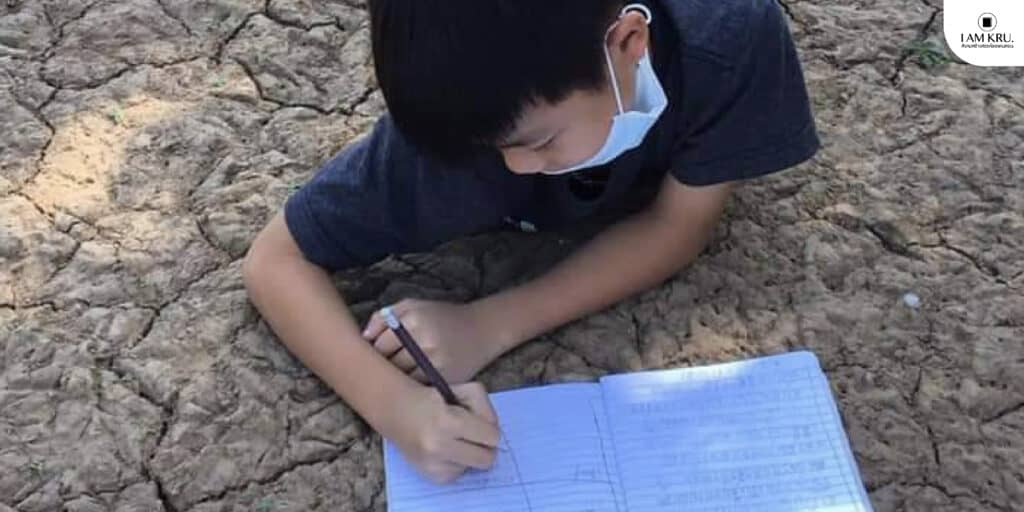
Even with the necessity of driving her child to and from school, four trips totaling nearly 200 kilometers each day, she finds it well worth it for the benefits received.
“Once he started attending, we saw his happiness, the kind we wanted for him. We observed his age-appropriate development and growth in stages. We immerse ourselves frequently in the school environment, absorbing its ways, and both mother and child have adjusted. If we were in Bangkok, what our child would miss out on is life skills, self-help, caring for others, psychosocial education, self-awareness, and self-regulation. In Bangkok, schools with this approach would be expensive, but here it’s free. The student body is diverse, from the children of laborers and farmers to doctors and lawyers. They get to learn about the different facets of society and not judge based on money or technology,”
saide Nama Namo’s mother.
She adds, “The value placed on high-level education and getting into top universities is something we’ve been conditioned to believe in. Yet, I’ve studied a lot and still don’t use it. Nowadays, if we want to know something, a single click provides the answer. And children are better at searching than we are. Therefore, I don’t see the need for them to take exams like we did. It’s better for them to learn to think and decide on their own.”
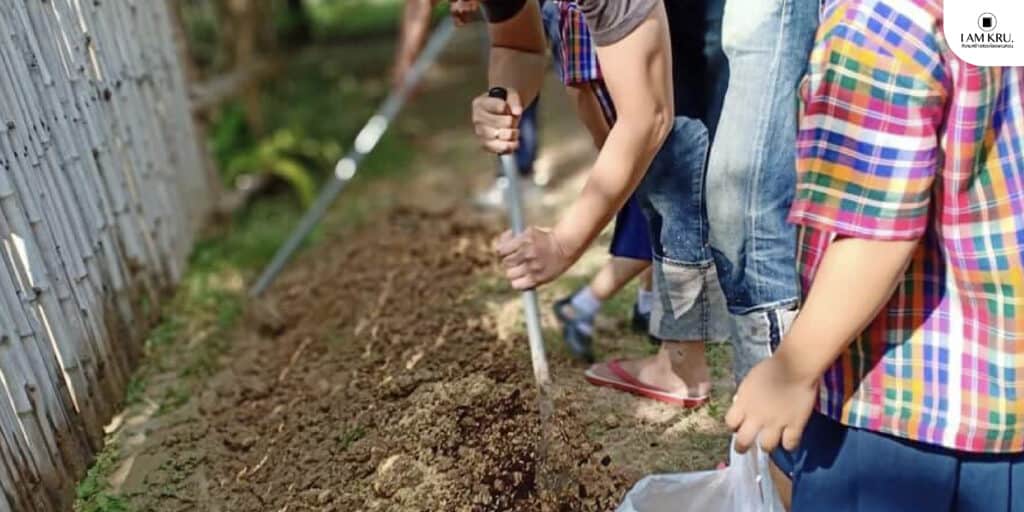
“Today, I’m proud to see him aware of who he is. Self-awareness is a crucial skill. If he knows himself, he can discern right from wrong and what consequences his actions may bring. If the outcomes are not okay, he must accept the results of his choices. Children who aren’t instilled with these values struggle with intellectual growth,”
Piyanut reflected.
Currently, Lamplaimat Pattana School, also known as the school outside the shell, collaborates with the Education Equality Fund (EEF) to organize the Teacher and School Development Project for Quality Education (TSQP). This initiative aims to improve teaching methods for other schools in the vicinity, thereby enhancing the quality of education for many medium-sized institutions.
72
Writer

- บุณยานุช พินิจนิยม (แพน)
